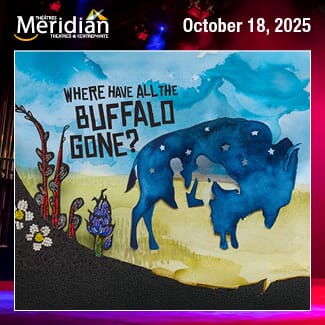 The weekend before last the team at Apartment613 spent the day live-blogging some of the sessions at ChangeCamp Ottawa 2009. We were pretty overwhelmed after the event – there were lots of great ideas and motivating folks there. We’ve taken some time to digest the content from the event and have tried to synthesize some the key themes here for our readers. If anyone has any thoughts on the ChangeCamp discussion (as I bet there were some of you there) we’d love to get your thoughts in the comment section. We can also pass your thoughts onto the team of organizers for ChangeCamp if you email us at editors@apt613.ca.
The weekend before last the team at Apartment613 spent the day live-blogging some of the sessions at ChangeCamp Ottawa 2009. We were pretty overwhelmed after the event – there were lots of great ideas and motivating folks there. We’ve taken some time to digest the content from the event and have tried to synthesize some the key themes here for our readers. If anyone has any thoughts on the ChangeCamp discussion (as I bet there were some of you there) we’d love to get your thoughts in the comment section. We can also pass your thoughts onto the team of organizers for ChangeCamp if you email us at editors@apt613.ca.
Keep in mind that we were running around ChangeCamp like mad, but didn’t make it to all the sessions. There are lots of materials that have ended up online about the various discussions and we’ve compiled some resources at the end of this post.
Forget free beer, free the data!
A lot of the folks at ChangeCamp like to crunch data. They are interested in using data to learn more about their communities and ensure that government money and resources are being used appropriately. There are a couple of things, however, that are keeping this data locked up, and that surfaced as an important theme at ChangeCamp.
- Accessing government information through access to information requests seems really hard and pretty expensive. We even heard some pretty weird stories about government employees using access to information requests to get access to stuff internally, which seems completely bizarro.
- Information on government websites is not always easy to find; one often needs to peel away the many layers to find what he or she wants. Discussions abounded about restructuring the architecture of government websites, and how to manage and organize information – particularly that of the federal government – to make it more user friendly. An example to follow appears to be that of the United Kingdom.
- Contrary to standard practice in the US and other nations, census data isn’t free in Canada. You actually need to pay Statistics Canada for the information if you want to get at it. Even other government departments need to pay StatsCan for the data, and because the process isn’t always coordinated, the same government department may purchase identical data sets multiple times.
Government policy sounds like a pain… but creative people also have creative solutions
Being in Ottawa, a lot of the folks taking part in ChangeCamp worked with or for the federal public service. There was a lot of interesting discussion on how advocates within the government can push forward social media in their organizations.
- The list of rules that govern government communications seems like it can be a huge challenge, but there do seem to be solutions out there. Government departments are bound by requirements from IT, “common look and feel” rules, official bilingualism, access to information rules on archiving, and probably many many more.
- The folks at the Public Health Agency of Canada are doing some interesting stuff and trying to get information out over Twitter. They are tweeting here: http://twitter.com/phac_gc. This use of social media – more as a broadcast tool than an engagement tool – seems like the common and logical first step for government departments.
One important note here is that it seemed great when folks from really different departments got together and just talked out ideas on how to work within the government context. There are obviously ways to work in this system, and getting really intelligent public servants together seemed really productive.
Where should social media turn up in your community?
We’ve seen some great examples of how social media technologies can help community groups be more productive, access new audiences, and get their ideas and issues out there. There was an interesting discussion with some community association-type folks on where social media might be able to help them. It seems a bit silly, though, to just have some community associations turn on the social media because it seems like the hot new thing.
- One of the biggest challenges for community associations is getting people to show up. This seems like one thing that social media could help with. Improving awareness of events, reaching a different audience and setting up online distribution channels for news and events can help community groups spread their message.
- The audience is important here – groups need to understand who they are trying to reach and why. There’s no point in turning to social media if the audience isn’t there. Since community groups have pretty slim volunteer human resources to work with, they need to make smart decisions based on what can help their cause rather than on what’s new and shiny.
- Social media can help groups and individuals get access to elected officials, but there are some things that we can do to ensure those officials stay plugged into the medium. Become your MP’s friend on Facebook, comment on their Twitter posts, ask questions about and link to their blogs. The more that these tools become common ways to meet and engage citizens, the more likely elected officials will value them.
- Remember that it’s all about building relationships – whether you email, tweet, or write an old-fashioned letter, follow up with your MP. Keep the conversation going, and don’t be afraid to talk about your own experiences. Handwriting a letter, in fact, is more likely to get noticed because it has that personal touch! Keep that sentiment alive in your other communications with your MP.
User-generated media is opening up new modes for accountability and engagement
Social media is about people writing things, taking photos, making videos or other media, and publishing them to online communities – which then (hopefully) are responding to this content with their own content. People publishing with only their own brains and morals as a filter seems like a pretty cool idea – especially when it’s happening all the time in really frequent bursts. You can throw a couple photos up on Flickr and tag them. You can tweet about something you saw happening first hand or re-tweet a note from someone you trust. You can update your Facebook status with interesting tidbits of information and links. All of this rapid-fire publishing can really keep a lot of eyes out there.
- The team behind www.stimuluswatch.ca did a session at ChangeCamp and their idea seems pretty cool. They are trying to provide a platform where the general public can post information from their community on how stimulus money and resources are being spent. For example: if you notice the roof on your community centre is being replaced with federal government money, you can post photos of the project on the website and keep track of the timeline. Hopefully these photos could be traced back to a spending announcement of some kind. By tracking spending and impact from the bottom up, stimuluswatch.ca is hoping to make the process of government spending far more real – and their ultimate goal is to provide citizens with a tool to help government work smarter. Not every MP can get out to every community and check on infrastructure projects, but there is probably someone with a digital camera close by who could help.
- Another good example of user-generated media is Freebase.com, an open database that uses open data sets like Wikipedia, MusicBrainz, IMDB and the SEC archives. (Users can also add information.) The goal of the project is to have structured and easily accessible information on various subjects. Shawn Simister presented to us his pet project: Ottawa Freebase.
- The electoral reform project in BC used websites as forums for engaging people in debate about the referendum. Even though it’s discouraging that the electoral reform referendum didn’t pass, we can continue to use social media to keep the idea alive. Governments are likely to use the failure of the BC referendum as an excuse to avoid the issue, but through forums, discussion groups, and blog posts, we can keep the conversation going. It’s important to keep people mobilized around these discussions, or else these issues are in danger of falling to the wayside.
Additional resources – tags, wikis, other
- Follow the discussion on Twitter. Tweets tagged with #cco09 will show up here: http://search.twitter.com/search?q=%23cco09
- The ChangeCamp team is working with the company pathable to compile the ChangeCamp Ottawa discussion in one place. Get it all online here: http://changecamp-ca.pathable.com/
- If you are not so into reading you can listen to @saxby and @nonstopnicktv talk ChangeCamp Ottawa in an online exclusive for CHUO’s Around The Block
Anything missing here? Thoughts to add? Please comment.









